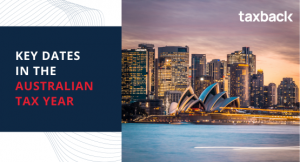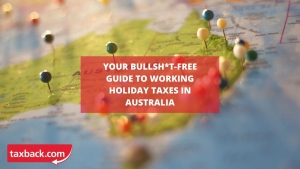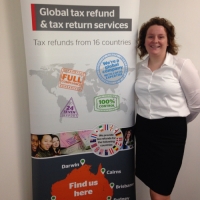Medicare in Australia: Are you Entitled?
What is Medicare?
Medicare is the Australian public health scheme. Instead of paying for health insurance, residents of Australia are subjected to a small levy which is deducted from their taxable income; as of the 1st July 2014, this levy stood at 2.0%.
However, if you're a foreign resident or have certain medical needs, you may be exempt from paying this charge. Alternatively, if you've been paying the levy and it turns out you qualify for an exemption, you could be entitled to some tax reimbursement. You may be exempt if you fall under any of the following categories:
Medical
Centrelink is a government initiative tailored to individuals who may be vulnerable from a social security standpoint – particularly carers, the elderly, ethnic minorities or the unemployed.
One of the services they offer is sickness allowance, which provides a stipend for Australian citizens over the age of 22 (but under the age of 65) who cannot work or study due to injury or illness. If you receive sickness allowance, you may also be eligible for a Medicare levy exemption. More information on Centrelink services can be found here.
You may also be eligible if you are a blind pensioner, entitled to unconditional free medical treatment under Defence Force Arrangements, or hold a Veteran gold card.
Certain repatriation arrangements may also grant you exemption from the Medicare levy: if you are an expatriate returning to Australia specifically for emergency medical treatment, for example.
Residency Status
If you live in Australia year-round, hold a permanent resident visa or have recently applied for a permanent residence visa, the likelihood is that you are not eligible for exemption from Medicare payments and will have to pay the 2% levy as part of your income tax return. You may still have to pay for Medicare if you're an Australian citizen who's been living abroad for less than five years.
It might also complicate your eligibility for exemption if you were previously a resident of the UK, Ireland, certain other European countries (a list can be found here) or New Zealand.
You may be eligible for levy exemption if you've been a foreign resident, or a resident of Norfolk Island, for at least part of the tax year (1st July – 30th June). If you've been a foreign resident for the entire year, you can claim a full exemption for the 365 days.
If you've only been a foreign resident for part of the year, you should still be eligible for exemption provided you have no dependants (children, a spouse, etc), and if you do have dependants that they're also exempt.
You can apply for a certificate from the Medicare Levy Exemption Certification Unit of Medicare Australia in order to claim a full exemption for the period detailed in the document.
The average tax refund Down Under is AU$2600
Income and SAPTO
How much you pay for Medicare is based solely on the taxable income shown on your return. Your Medicare levy is reduced if your income is below a certain threshold and in some cases you may not have to pay the levy at all.
At present, the threshold for an individual to be liable for Medicare payments is around $20,542 per annum, although this may be subject to change in the future. You are eligible for a reduction on your Medicare levy if your income is equal to or less than $24,167 per annum.
If you're eligible for the Seniors and Pensioners Tax Offset, these values are slightly higher. You are not liable to pay any levy whatsoever if your annual income is below $32,279, and your Medicare payments are significantly reduced if it falls beneath $37,975 per annum.
There may be some flexibility for exemption beyond these figures depending on your family taxable income – you have some leeway depending on what your spouse earns, or if you're a single parent.
Eligibility
Finally, you are not entitled to Medicare benefits – and therefore don't have to pay for them – if you are not a citizen of Australia, none of your dependants are citizens of Australia, or if you are only in Australia for diplomatic purposes or are a member of a diplomatic party. This extends to anyone in a consular post on Australian soil.
If you think you might be eligible for an exemption, make sure to visit the Australian Taxation Office website or the Department for Human Services.




